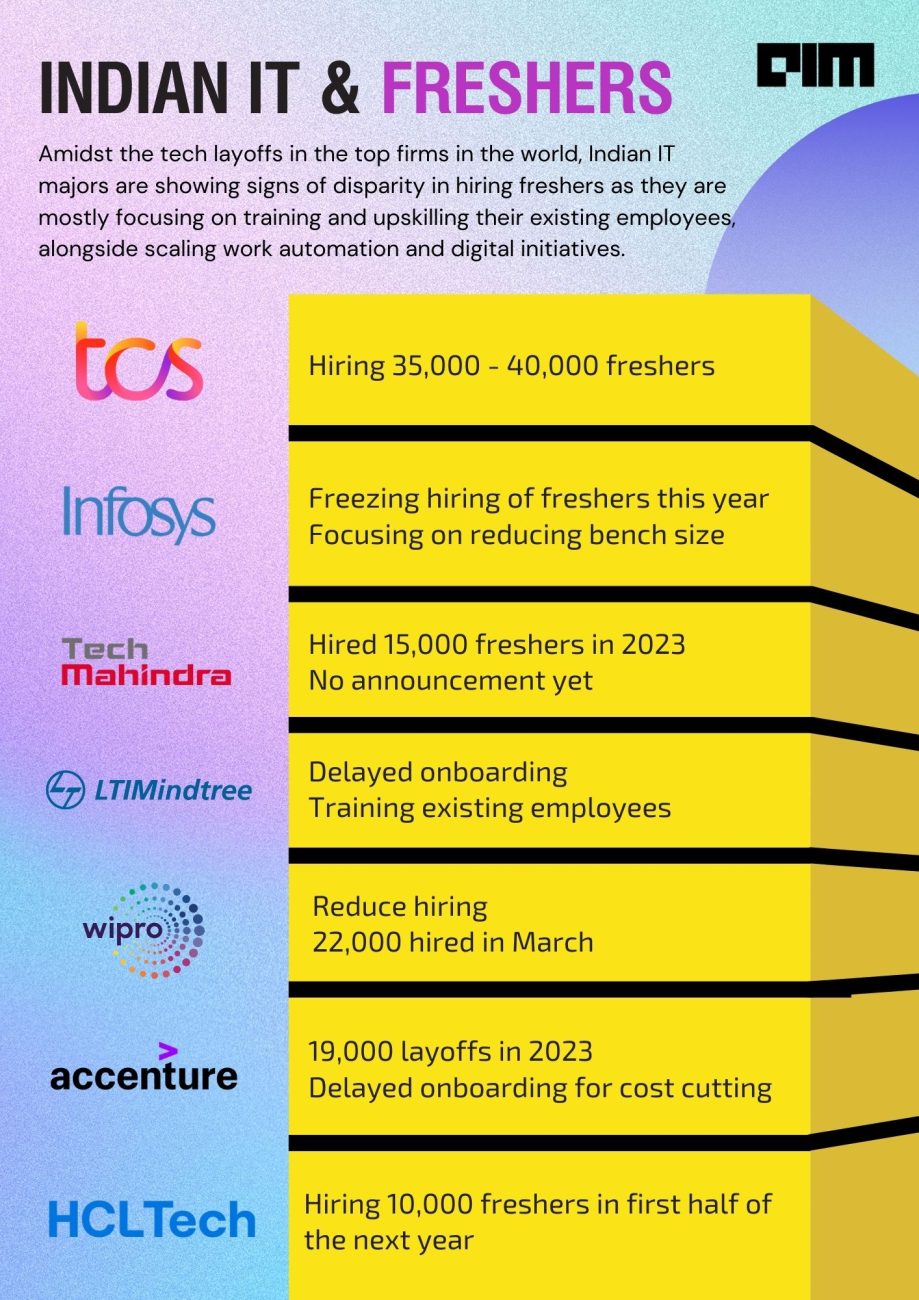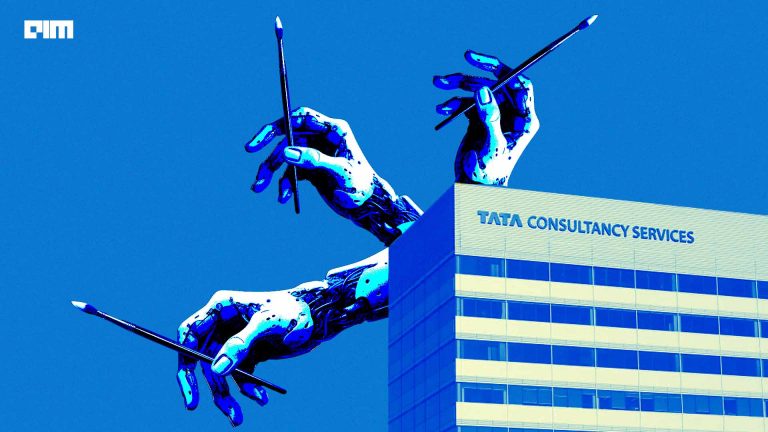It was October 2022. Indian IT firms Wipro, Infosys, and Tech Mahindra, having delayed the onboarding for months, were all revoking offer letters, affecting nearly 30,000 freshers. Adding insult to injury, the “hired” freshers, who were waiting endlessly to receive their joining letters, were blamed for not meeting the qualification criteria for the job role before the offers were revoked.
Exactly a year later, amidst rampant global layoffs, Indian IT biggies froze hiring of freshers citing over-hiring in the previous year. They wanted to focus on utilising the existing bench, while also training existing employees with generative AI.

But it is not just the IT giants who are not interested in freshers anymore, a lot of graduates have also increasingly lost interest in applying for Indian IT roles.
Stagnant starting salaries
Undoubtedly, one of the biggest reasons for not accepting a job offer is the meagre salary. And Indian IT giants are not even trying to allure new joinees anymore.
The reluctance of recent graduates to pursue careers in the Indian IT sector can be attributed to the prolonged stagnation of entry-level salaries, which have remained at Rs 3.5-4 LPA for over a decade. While the IT services industry’s exports have experienced significant growth, the lack of salary progression has deterred graduates from joining.
Indian IT is a $245 billion industry. Despite the less salary, around 800,000 freshers took up jobs in IT firms in the past two years, but only as a backup option, i.e. till they got higher paying jobs.
High-paying product companies with compensation packages ranging from Rs 10-20 LPA have become more attractive, leading to a decline in interest from Tier I and Tier II colleges. On the other hand, freshers from Tier III and IV colleges are joining IT services.
To address this issue, some top IT companies have introduced differential hiring practices, offering better pay and specialised roles to attract aspiring individuals. Niche roles related to AI offer around Rs 7 lakh per annum, but even they are miniscule compared to companies such as Microsoft, Google, or any other product company offering upwards of Rs 14 lakhs per annum.
This results in the diminishing of interest even further.
Additionally, the growing presence of Global Capacity Centres (GCCs) in India has contributed to job growth, offering a variety of roles with competitive compensation. The changing preferences among students, particularly in Tier II colleges, have resulted in reduced reliance on IT services companies.
As per insights from numerous placement officers and industry executives, these GCCs aim to increase the hiring of entry-level professionals by 50-100% compared to the previous year, offering salaries up to 30% higher than domestic IT services firms.
Samuel Rajkumar V, director of the Vellore Institute of Technology’s (VIT) career development centre, remarked, “Last year, out of 947 companies that visited for the 2023 batch, more than 350 were GCCs. This year, among the 440 companies that have visited thus far for the 2024 batch, over 200 are GCCs.”
No clear-cut plans
Back in February, Wipro sent a letter to freshers to settle for almost 50 percent less salary than what was promised, blaming the macroeconomic conditions. The worse part was that the mail stated that at least the freshers were getting an opportunity to work.
TV Mohandas Pai, the Indian expert philanthropist lashed back at it in an interview. “At least getting an opportunity?” he said. “This is very wrong.” He said that companies that are making a lot of profits and earning thousands of crores in revenue should value their employees and give a proper compensation to them.
Some people on social media blamed the IT companies’ toxic culture and exploitation in the IT firms. “None of these firms act on daily incidents of bullying and unprofessional behaviour by their staff and senior leadership,” said a user.
On the other hand, companies such as Accenture have clearly outlined its strategy for generative AI and confidently announced its plans and investments, which also attracts a lot of graduates. This is in contrast to the Indian IT giants that are still slowly embracing generative AI, though have announced PoCs for the same.
At the same time, after 19,000 layoffs this year, Accenture has decided to not hike the salaries of its employees in India this year. The IT giant is also delaying hiring freshers to cut costs and “grapple with the present economic conditions”.
Regardless, IT firms are trying to allure employees by saying that they would continue hiring more freshers. But the graduates now know that after over-hiring during the pandemic, then laying off employees, and revoking offer letters, the companies are not able to deliver what they promised.




























